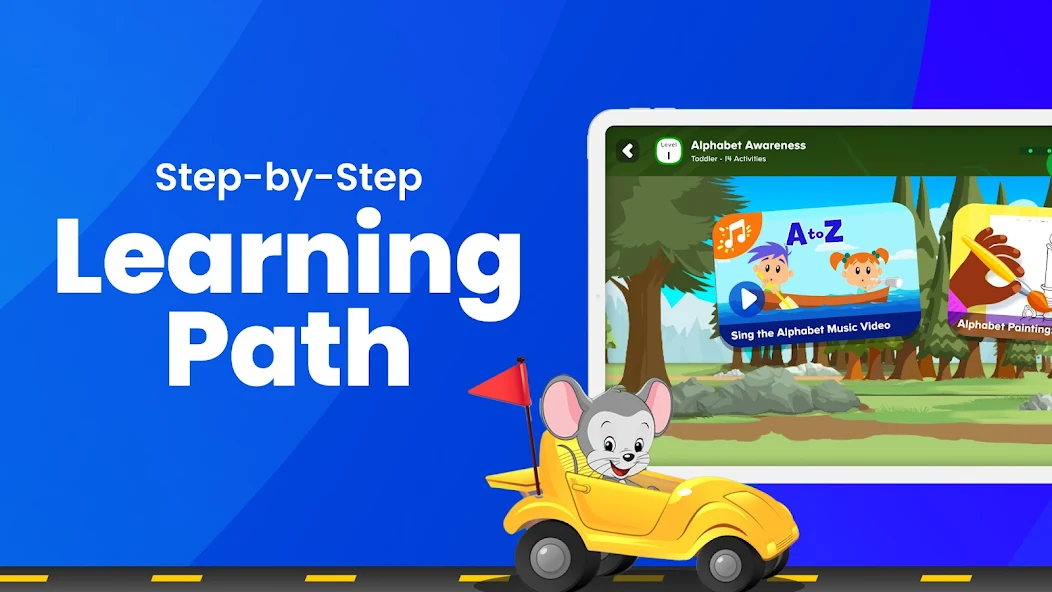Every child’s education begins in kindergarten. It develops study habits, social skills, and cognitive skills that will help students succeed. Here, learning should be fun and engaging, not boring or overpowering.

Kindergarten Success Depends on Play
A youngster learns naturally via play. When children play, they learn, practise, and explore. Explorer, creative, and problem-solving games for kindergarteners can help them succeed academically.
Educational games engage and relax kids to practise numbers, alphabet, colours, shapes and patterns. Allowing youngsters to try, fail, and achieve at their own speed without judgement boosts confidence.
Children learn turn-taking, teamwork, and empathy by playing games with classmates or family. Kindergarten success depends on these traits as much as academic readiness.
Educational games: what makes them?
Some enjoyable games aren’t educational. Educational games for kids are adapted to their growth and developed to achieve learning goals.
Kindergarteners’ favourite games have these traits:
They introduce age-appropriate arithmetic, literacy, science, and problem-solving skills in early childhood education. Interactive material encourages youngsters to participate. As children learn, these activities evolve, keeping them involved and challenged.
Also crucial is appearance. Children learn better with bright colours, entertaining characters, and interactive components. An effective educational game gives rapid feedback, applauding accomplishments and gently correcting faults to urge kids to learn.
Finally, they moderate screen time. Great apps and platforms respect attention spans and offer experiences that complement offline learning, giving kids a well-rounded education.
Kindergarten Prep and Digital Games
Kindergarten prep today includes digital platforms. As tablets and smartphones become more ubiquitous, parents are using instructional kids games to maximise screen time.
Kids’ digital games have advantages. Their learning experiences can be tailored to the child’s progress. Apps with stars, badges, and rewards encourage kids to practise and progress.
They also encourage self-directed learning to boost confidence and responsibility.
Interactive play and expert-designed learning content make digital kids games more powerful than traditional toys and games.
Important Balance
Parents and carers must keep a balanced routine while using educational kids games. Children should combine screen-based learning with free play, outdoor exploration, reading tangible books, creative projects, and social engagement.
Kids games can enhance these experiences by reinforcing classroom lessons and helping kids practise skills at home.
Most Popular Kindergarten Learning Platforms
Parents and educators love several platforms for their enjoyable, instructive kindergarten readiness games. These are popular: YouTube Kids, LingoKids, Kiddopia, and Reading Eggs.
Kids-focused YouTube Kids offers educational videos, songs, and interactive material. YouTube Kids channels teach literacy, numeracy, and general knowledge through animated stories and songs. While parents can limit usage and monitor material, it lets kids explore their interests safely.
Young children acquire language and basic academic abilities with LingoKids. Words, numbers, colours, and social-emotional skills are taught in fun, interactive games. LingoKids adapts to the child’s progress and allows for a personalised experience.
Learning and creativity are on Kiddopia. Kids may play games about alphabets, numeracy, shapes, colours, planets, and occupations. Kiddopia puts fun first by embedding each educational lesson in a colourful, animated mini-game.
Reading Eggs is a famous early literacy platform. Reading confidence is taught through interactive reading lessons, phonics activities, and storybooks. Through entertaining and engaging activities, Reading Eggs helps kindergarteners learn letter recognition, sound awareness, and understanding.
Conclusion:
Educational and fun kids games help kids succeed in kindergarten. These games teach young learners key skills through play, making learning fun and engaging. Parent and educator-trusted platforms including YouTube Kids, LingoKids, Kiddopia, and Reading Eggs enhance literacy, numeracy, problem-solving, and social-emotional learning.